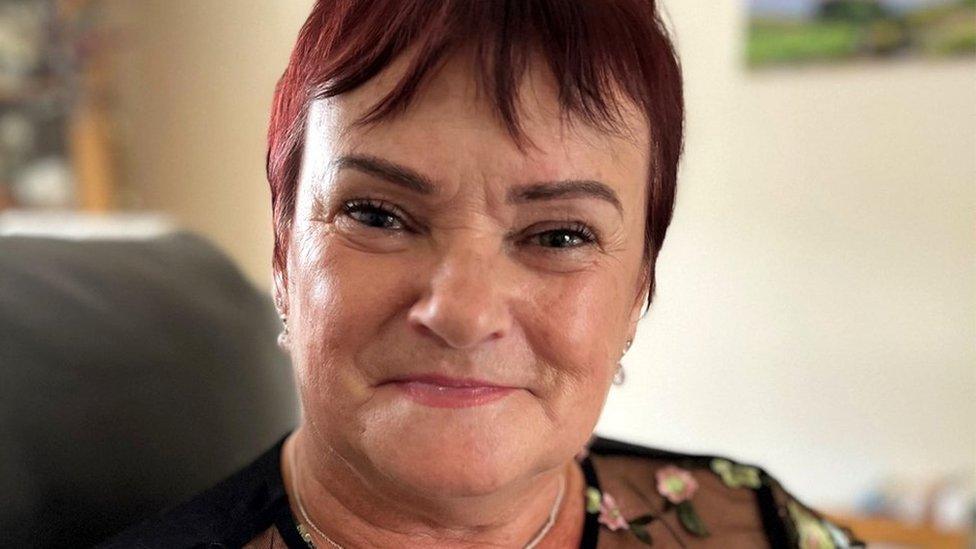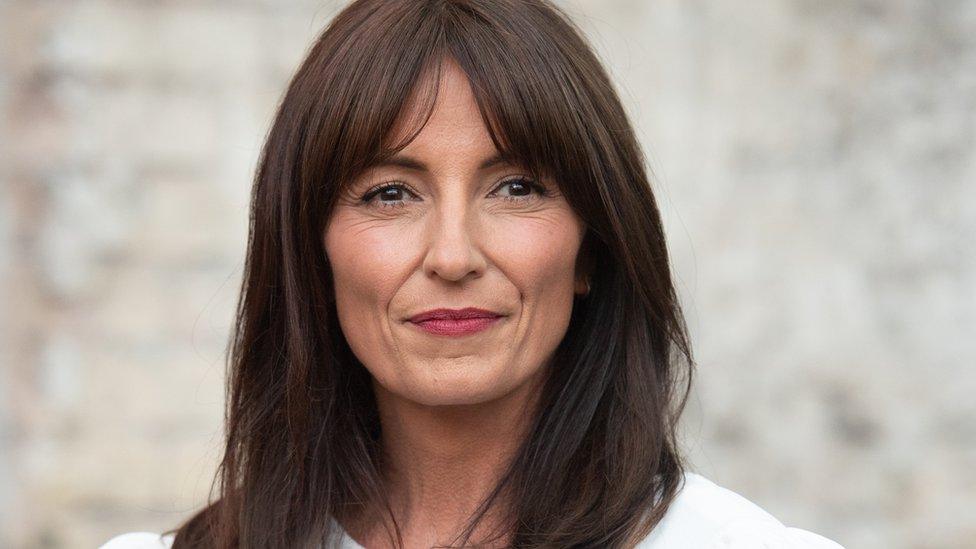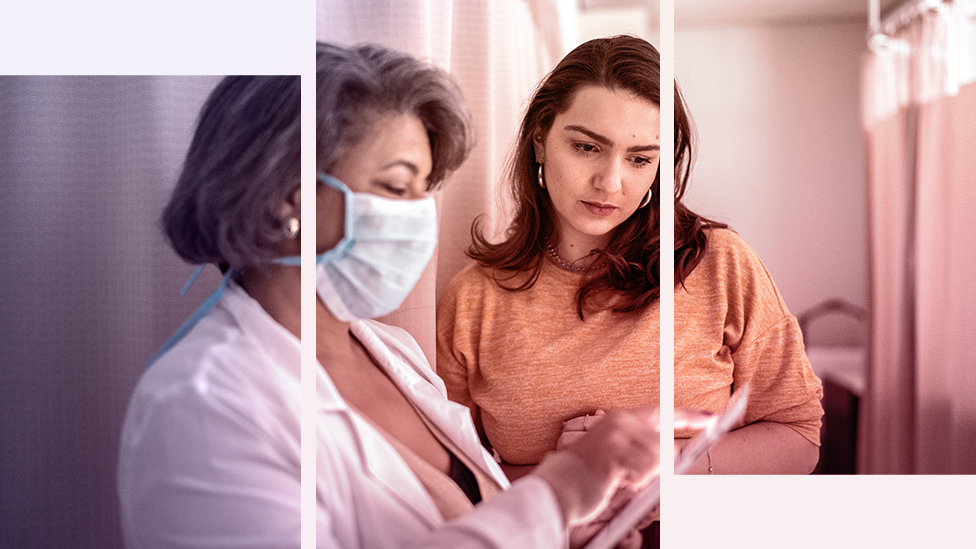Menopause left woman too scared to leave the house
- Published

Joan Graham became seriously unwell after coming off the contraceptive pill
When she was 56, Joan Graham was advised to stop taking the contraceptive pill but within months she became extremely ill and in need of psychiatric help.
"I had no quality of life at all," she says.
Joan had never experienced any major health problems before and had been on and off the pill for decades without trouble.
She gave up the pill after a review of the medication at which her GP told her that at 56 it was time to come off it.
However, she quickly started to feel unwell.
Joan explained: "I started wakening up during the night and as the weeks and the months went on it came to a stage where I couldn't sleep at all day or night. It was horrendous."
Joan, from Renfrewshire, went back to the doctor to ask for hormone replacement therapy (HRT) thinking that coming off the pill may have caused the problems, due to a drop in hormone levels.
She says she was told by her doctor that because she did not experience hot flushes she would not be prescribed HRT.
Over a three-month period she became sicker and could hardly walk.
Joan said: "I started suffering from panic attacks, anxiety, my hair was falling out, I wouldn't go out the door, I wouldn't even look out the blinds, it was horrendous.
"My lowest moment would be just lying, sitting on the kitchen floor just crying, hardly able to stand up because I was so weak from not being able to eat anything, not drinking, just in total torture. Turmoil, I would say."
Joan was admitted to two different psychiatric hospitals over the next four months.
It was another year-and-a-half before she got HRT by complete accident.
She said: "It was luck. Every so often I would phone to see if there was a new doctor and this one day there happened to be a young fellow and he phoned me back and he said 'I've just done a course in menopause'. I thought 'Oh my, you're my saviour'."
The new doctor said HRT could benefit Joan and they should try it for three months.

Dr Heather Currie says that HRT can be life-changing for some women but it is not for everyone
Two years later, Joan is now a picture of health.
She said: "I set up a group locally, like a drop-in menopause support group, but all the information I give out is from the Menopause Support Network. I do not have any medical training but I know how to guide somebody to access the help that they need."
'Some women don't have hot flushes'
Menopause is when a woman's periods stop due to lower hormone levels.
It usually affects women between the ages of 45 and 55 but it can happen earlier.
Joan's case is extreme but Dr Heather Currie, an associate specialist gynaecologist at Dumfries & Galloway NHS and adviser to the Scottish government, says women and people who work in healthcare need to have better awareness of the symptoms of menopause.
She says despite there being a lot of information available, staff are overwhelmed and don't always have time to access it.
"Some women do have hot flushes and sweats and some women don't have that at all and may have other symptoms such as mood changes and feeling more emotional, anxiety, a low level of depressed mood," Dr Currie says.
She says sleep disturbance can be common issue.

Davina McCall raised awareness of distressing menopause symptoms in TV documentaries in 2021 and 2022
TV star Davina McCall's campaign to raise awareness of the menopause has led to more women asking for HRT.
Dr Currie says: "I think Davina bringing a lot of issues into the open has been really helpful.
"On the other hand, sometimes now we are seeing women who have unrealistic expectations."
She agrees that HRT can be life-changing for some women but it is not for everyone.
"What we experience every day, there's a lot of lifestyle stresses going on that can affect how we feel but on the other hand, if added to that are menopausal symptoms, while I can't reduce life stresses, at least colleagues and I can control the menopausal bit of it," Dr Currie says.
She adds that women shouldn't fear menopause. Many have minimal symptoms or symptoms that don't have an impact.
Dr Chris Williams, the deputy chairman of the Royal College of General Practitioners Scotland, says menopause is "a complex area of relative risks and benefits which require careful exploration for every individual".
A Scottish government spokesperson said menopause support was one of its priorities in the Women's Health Plan.
They said: "We have improved access to services, with a specialist menopause service in place in each mainland health board, and a buddy system in the islands."
- Published7 November 2024
